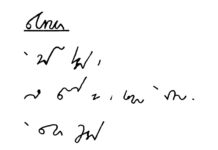
Struggling to Sleep? Try These Science-Backed Tips for Falling Asleep Fast
Are you one of the millions of people who struggle to fall asleep at night? If so, you’re not alone. According to the National Sleep Foundation, more than 50 million Americans suffer from sleep disorders, and one in three adults don’t get enough sleep on a regular basis. Whether you have trouble falling asleep, staying asleep, or waking up feeling refreshed, it’s important to address the issue and find a solution. Luckily, there are several science-backed tips and techniques that can help you fall asleep faster and improve the quality of your sleep.
1. Create a Relaxing Bedtime Routine
One of the most effective ways to fall asleep faster is to create a relaxing bedtime routine. This can include activities such as taking a warm bath, reading a book, meditating, or practicing deep breathing exercises. By establishing a calming routine before bed, you can signal to your body and mind that it’s time to wind down and prepare for sleep.
2. Limit Exposure to Blue Light
Blue light, which is emitted by electronic devices such as smartphones, tablets, and computers, can interfere with the body’s natural sleep-wake cycle. Exposure to blue light in the evening can suppress the production of the sleep hormone melatonin, making it harder to fall asleep. To minimize the impact of blue light on your sleep, try to limit your use of electronic devices before bed, or use blue light blocking glasses or apps that adjust the color temperature of your screen.
3. Maintain a Consistent Sleep Schedule
Another important factor in falling asleep quickly is maintaining a consistent sleep schedule. Your body has its own internal clock, known as the circadian rhythm, which regulates your sleep-wake cycle. By going to bed and waking up at the same time every day, you can help regulate your internal clock and improve the quality of your sleep.
4. Create a Comfortable Sleep Environment
The environment in which you sleep can have a significant impact on your ability to fall asleep quickly. Make sure your bedroom is cool, dark, and quiet, and invest in a comfortable mattress and pillows. You may also want to consider using blackout curtains, white noise machines, or earplugs to create an optimal sleep environment.
5. Limit Caffeine and Alcohol Intake
Caffeine and alcohol are both substances that can disrupt your sleep. Caffeine is a stimulant that can keep you awake, so limit your intake in the hours leading up to bedtime. Alcohol, on the other hand, may help you fall asleep initially, but it can disrupt your sleep later in the night. If you’re struggling to fall asleep, it’s best to avoid alcohol close to bedtime.
6. Try Relaxation Techniques
Several relaxation techniques have been shown to promote better sleep. These include progressive muscle relaxation, guided imagery, and autogenic training. By practicing these techniques before bed, you can reduce stress and anxiety, and prepare your body and mind for sleep.
7. Exercise Regularly
Regular exercise has been shown to improve the quality of sleep and help people fall asleep faster. Engaging in physical activity during the day can help tire your body out, making it easier to fall asleep at night. However, it’s important to avoid vigorous exercise close to bedtime, as this can have the opposite effect and make it harder to fall asleep.
8. Consider Cognitive Behavioral Therapy for Insomnia (CBT-I)
Cognitive Behavioral Therapy for Insomnia (CBT-I) is a type of therapy that has been proven to be effective in treating chronic insomnia. It focuses on changing the thoughts and behaviors that are contributing to sleep problems, and can help people develop healthy sleep habits and address underlying issues that may be interfering with their sleep.
9. Try Natural Sleep Aids
There are several natural sleep aids that may help you fall asleep faster, such as melatonin, valerian root, and chamomile tea. These supplements and remedies have been used for centuries and have been shown to have a calming effect on the body, making it easier to fall asleep.
10. Seek Professional Help
If you’ve tried these tips and are still struggling to fall asleep, it may be time to seek professional help. A doctor or sleep specialist can help identify any underlying medical or psychological issues that may be contributing to your sleep problems, and work with you to develop a personalized treatment plan.
In conclusion, struggling to fall asleep can have a significant impact on your overall health and well-being. By implementing these science-backed tips and techniques, you can improve the quality of your sleep and fall asleep faster. Whether it’s creating a relaxing bedtime routine, limiting exposure to blue light, or seeking professional help, there are several strategies that can help you get the good night’s sleep you deserve. Don’t let sleep difficulties continue to affect your life – try these tips and take control of your sleep today.


















